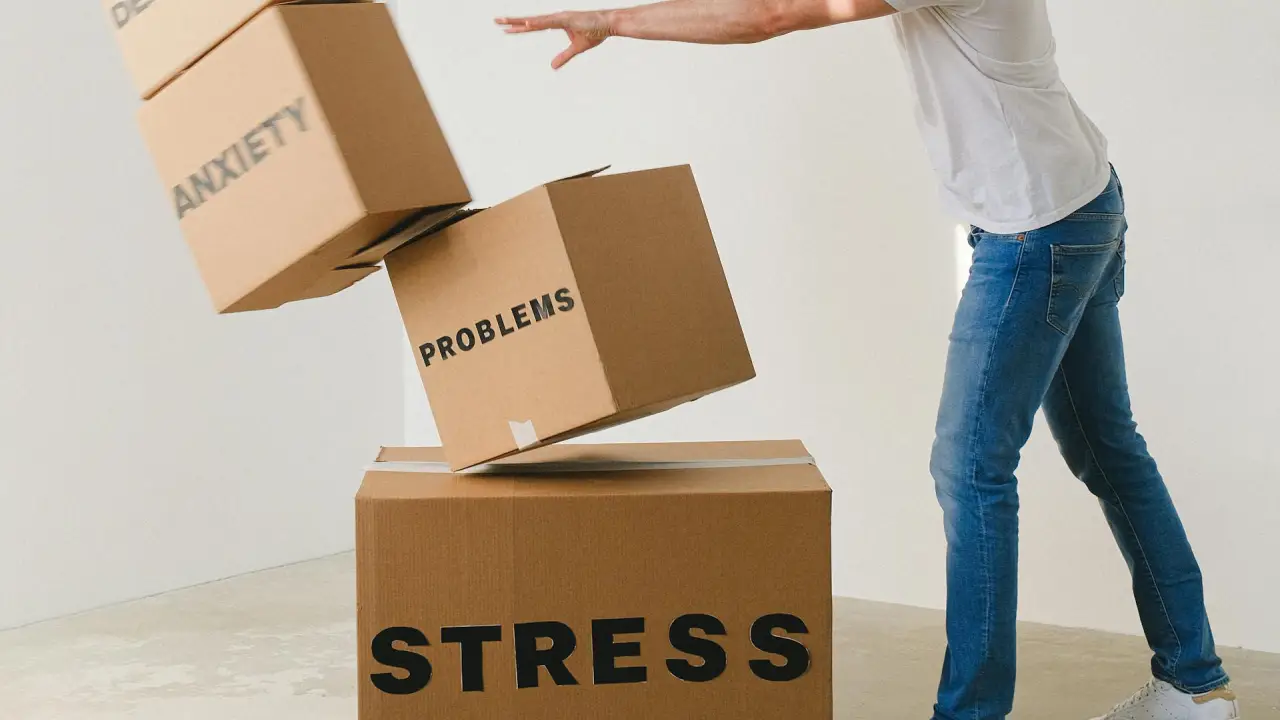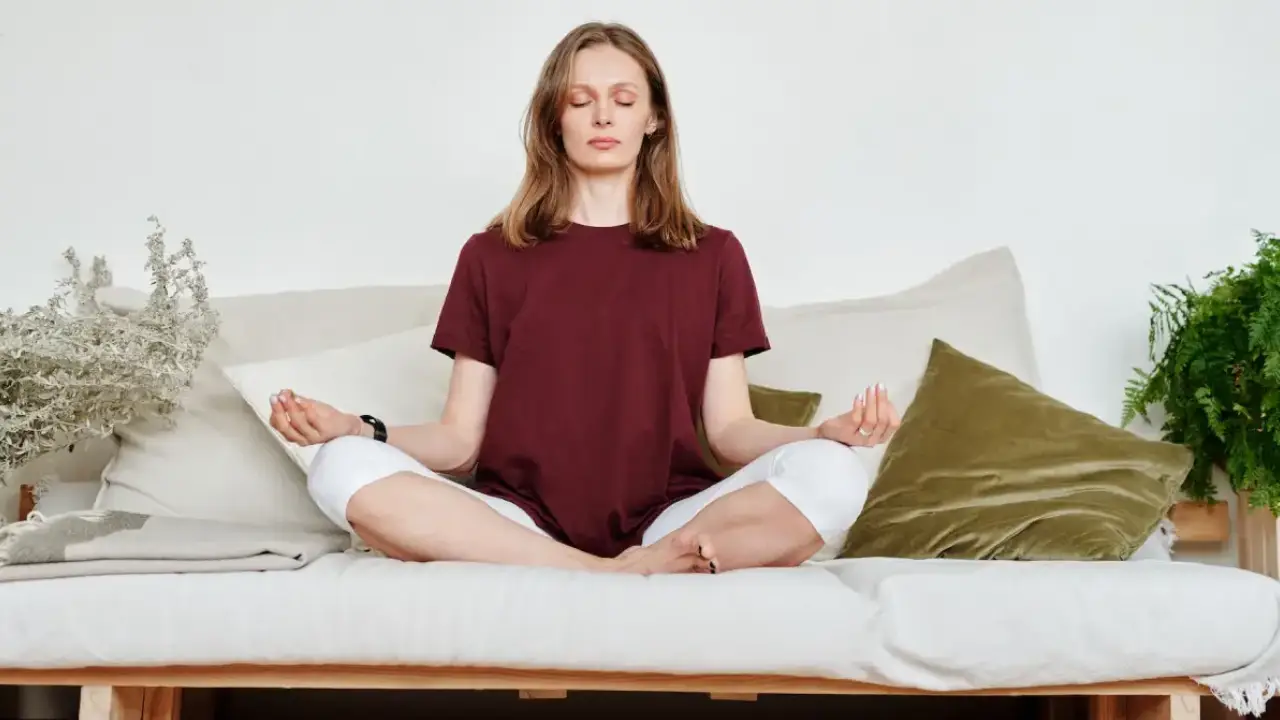Feeling overwhelmed by daily stress and anxiety? You’re not alone. Many people today grapple with these issues, whether it’s due to work pressures, personal challenges, or simply the fast pace of modern life. However, there are straightforward and effective methods to help you manage and reduce stress and anxiety. Let’s explore some practical strategies that you can start implementing today.
Practice Mindfulness Meditation
Mindfulness meditation is a powerful tool to reduce stress and anxiety. This practice involves paying full attention to the present moment, acknowledging and accepting your thoughts and feelings without judgment. Numerous studies have shown that mindfulness meditation can significantly reduce symptoms of anxiety and depression.
To get started with mindfulness meditation, find a quiet place to sit comfortably. Close your eyes and focus on your breath. Notice the sensation of the air entering and leaving your nostrils. When your mind starts to wander, gently bring your attention back to your breath. Start with just five minutes a day and gradually increase the duration as you become more comfortable with the practice.
Get Moving: Exercise Regularly
Exercise is one of the most effective ways to reduce stress and anxiety. Physical activity increases the production of endorphins, which are natural mood lifters. It also helps you sleep better, which can be negatively affected by stress and anxiety.
You don’t need to become a gym enthusiast to reap the benefits of exercise. Simple activities like walking, jogging, swimming, or even dancing can help. Aim for at least 30 minutes of moderate exercise most days of the week. Not only will you feel better physically, but you’ll also notice a significant improvement in your mental well-being.
Connect with Others
Social interaction is a crucial component of managing stress and anxiety. Sharing your feelings with a trusted friend or family member can provide a sense of relief and support. Sometimes, simply talking about what’s bothering you can help you gain a new perspective on your problems.
If you find it difficult to talk to someone close to you, consider joining a support group or seeking the help of a professional therapist. Many people find that talking to others who are experiencing similar issues can be incredibly comforting and helpful.
Practice Deep Breathing Exercises
Deep breathing exercises are a quick and easy way to calm your mind and reduce stress and anxiety. When you take deep, slow breaths, it signals to your brain that it’s time to relax. This can help lower your heart rate and blood pressure, creating a sense of calm.
One simple technique is the 4-7-8 breathing method. Inhale deeply through your nose for a count of four, hold your breath for a count of seven, and then exhale completely through your mouth for a count of eight. Repeat this cycle three or four times whenever you feel stressed or anxious.
Maintain a Healthy Diet
What you eat can have a significant impact on your stress and anxiety levels. Eating a balanced diet rich in fruits, vegetables, lean proteins, and whole grains can help stabilize your mood and energy levels. Avoid excessive caffeine and sugar, as these can exacerbate anxiety symptoms.
Certain foods, like salmon, blueberries, and almonds, are known to have stress-reducing properties. Incorporating these into your diet can provide additional support in managing stress and anxiety.
Establish a Consistent Sleep Routine
Good sleep hygiene is essential for managing stress and anxiety. A lack of sleep can make it more difficult to cope with stress, while chronic stress can interfere with your ability to sleep well. Establishing a consistent sleep routine can help break this cycle.
Try to go to bed and wake up at the same time every day, even on weekends. Create a relaxing bedtime routine, such as reading a book or taking a warm bath, to signal to your body that it’s time to wind down. Make your bedroom a comfortable, restful environment by keeping it dark, quiet, and cool.
Limit Caffeine and Alcohol
While it might be tempting to reach for a cup of coffee to boost your energy or a glass of wine to unwind, both caffeine and alcohol can actually increase stress and anxiety levels. Caffeine is a stimulant that can lead to increased heart rate and anxiety, while alcohol can disrupt sleep and mood regulation.
Try reducing your caffeine intake gradually and replacing it with herbal teas. If you enjoy a drink in the evening, limit it to one serving and make sure it’s consumed several hours before bedtime.
Practice Gratitude
Focusing on what you’re grateful for can have a powerful impact on your mental health. Gratitude helps shift your focus away from stressors and towards positive aspects of your life. This can improve your mood and overall outlook.
Consider keeping a gratitude journal. Each day, write down three things you’re thankful for. They can be big or small – what’s important is that you acknowledge them. Over time, you’ll likely find that this practice helps reduce feelings of stress and anxiety.
Take Time for Hobbies
Engaging in activities you enjoy can be a great way to relax and take your mind off stress. Whether it’s painting, gardening, reading, or playing a musical instrument, hobbies can provide a much-needed break from the pressures of daily life.
Make it a point to set aside time for your hobbies each week. Treat this time as a priority, just as you would with work or other responsibilities. This can help ensure you regularly engage in activities that bring you joy and relaxation.
Seek Professional Help When Needed
If you find that stress and anxiety are overwhelming and difficult to manage on your own, don’t hesitate to seek professional help. Therapists and counselors are trained to help people cope with stress and anxiety. They can provide you with strategies and tools tailored to your specific situation.
Cognitive-behavioral therapy (CBT) is a particularly effective form of therapy for anxiety. It helps you identify and change negative thought patterns that contribute to stress and anxiety. Medication can also be helpful for some people, especially when combined with therapy.
Practice Self-Compassion
Being kind to yourself is essential when dealing with stress and anxiety. It’s easy to be hard on yourself, especially when things aren’t going well. However, self-criticism can make stress and anxiety worse.
Practice self-compassion by treating yourself with the same kindness and understanding that you would offer to a friend. Acknowledge your feelings without judgment and remind yourself that it’s okay to have difficult days. Self-compassion can help you build resilience and improve your overall well-being.
Spend Time in Nature
Spending time outdoors can have a calming effect on your mind and body. Nature offers a peaceful environment that can help reduce stress and anxiety. Activities like walking in the park, hiking, or simply sitting by a lake can provide a much-needed break from the hustle and bustle of daily life.
Try to incorporate some outdoor time into your routine. Even a short walk during your lunch break can make a significant difference in how you feel.
Laugh Often
Laughter truly is the best medicine. It can lighten your mood and provide immediate relief from stress and anxiety. Watching a funny movie, reading a humorous book, or spending time with people who make you laugh can help lift your spirits.
Make it a point to seek out humor in your daily life. Surround yourself with people and activities that bring joy and laughter.
Set Realistic Goals
Setting realistic goals can help you manage stress and anxiety more effectively. Break down large tasks into smaller, manageable steps and prioritize them. This can prevent you from feeling overwhelmed and help you stay focused on what needs to be done.
Remember to celebrate your accomplishments, no matter how small. Recognizing your progress can boost your confidence and motivate you to keep going.
Conclusion
Stress and anxiety are common issues, but they don’t have to control your life. By incorporating these simple strategies into your daily routine, you can take significant steps towards reducing stress and improving your overall well-being. Try out a few of these tips and see what works best for you.
Have any tips of your own to reduce stress and anxiety? Share your experiences in the comments below – we’d love to hear from you!





